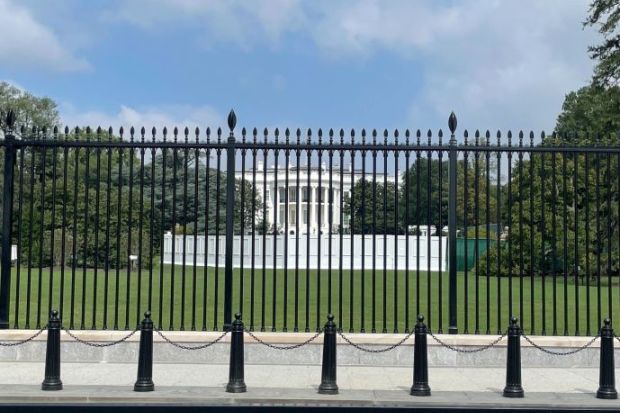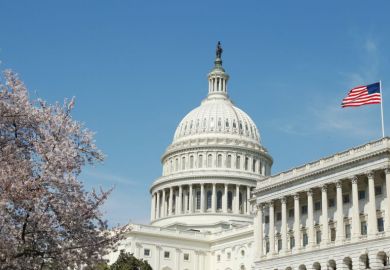US president Joe Biden’s chief science adviser, Eric Lander, has resigned after an internal investigation showed him engaging in a pattern of bullying and demeaning his subordinate female co-workers.
The White House initially stuck by Professor Lander – a professor of biology at both the Massachusetts Institute of Technology and Harvard University – despite the president’s repeated promises in the past to fire anyone “on the spot” if they disrespected others.
But after a day of accumulating pressure, Professor Lander agreed to step down.
“I believe it is not possible to continue effectively in my role, and the work of this office is far too important to be hindered,” Professor Lander said in a letter to Mr Biden.
The allegations were first made public by Politico, which said a White House investigation found 14 current and former staffers in its Office of Science and Technology Policy described a toxic environment of humiliation under Professor Lander’s leadership. The initial complaint came from Rachel Wallace, the OSTP general counsel, who told Politico she was demoted to deputy counsel for protesting the situation within the office.
Ms Wallace told Politico that Professor Lander “retaliated against staff for speaking out and asking questions by calling them names, disparaging them, embarrassing them in front of their peers, laughing at them, shunning them, taking away their duties, and replacing them or driving them out of the agency. Numerous women have been left in tears, traumatised, and feeling vulnerable and isolated.”
Six current and former OSTP staffers told Politico “that while he bullies men and women, he appears to take delight in trying to embarrass female colleagues in front of others”.
The White House, in an initial statement on the matter, said its investigation “did not find credible evidence of gender-based discrimination”, adding: “The complainant’s reassignment was deemed appropriate.” Yet, the White House said, the investigation did find violations of the federal “safe and respectful workplace policy”, and said that Professor Lander and his office were “required to undertake a number of actions to the correct the behaviour”.
As the report was about to become public, Professor Lander wrote a letter of apology to his staff, admitting his disrespectful behaviours, saying that such conduct “reflects poorly on this administration and interferes with our work”, and promising to do better in the future.
That left the White House press secretary, Jen Psaki, repeatedly trying to explain to reporters why Mr Biden’s zero-tolerance promise did not apply to Professor Lander.
Ms Psaki, buffeted during her daily press briefing with questions about the White House’s decision to retain Professor Lander, argued that the chief goal behind Mr Biden’s pledge to immediately fire anyone who disrespects others was “to prevent this behaviour from ever happening again”.
Professor Lander, however, had arrived at the OSTP job amid concern over his gender attitudes. During the US Senate hearing on his confirmation be OSTP director, he admitted that he downplayed the importance of Nobel prizewinners Jennifer Doudna and Emmanuelle Charpentier in developing the transformative CRISPR gene-editing technology, and denied that he knew of the late Jeffrey Epstein’s sex crimes convictions when he held meetings with the infamous financier.
By evening, Professor Lander was losing support within his own party. The top Democrat and Republican on the House science committee jointly wrote to Mr Biden to ask for a copy of the White House investigation. The allegations against Professor Lander were “extremely troubling”, the lawmakers told the president.
Professor Lander has for decades been a leading figure in both science and science policy. He was the founding director of the Broad Institute of MIT and Harvard, and co-chair of the Obama administration’s Council of Advisors on Science and Technology. He grew close to Mr Biden and the president’s determination to fight cancer following the 2015 death of his son Beau. As vice-president in the Obama administration, Mr Biden pushed for greater research efforts through what he called his Cancer Moonshot initiative.
Before the allegations against Professor Lander became public, but after the White House concluded its investigation, Professor Lander joined Mr Biden last week at a White House event where Mr Biden promised that Professor Lander “will chart the path for the Cancer Moonshot for 2022 and beyond”.
The controversy comes as US universities are themselves trying to set firm new boundaries on unacceptable conduct toward subordinates and women. In one of the most high-profile cases, just last month, the University of Michigan fired its president, Mark Schlissel, after finding he engaged in a sexual relationship with an employee.
Mr Biden elevated the OSTP director position to Cabinet rank to demonstrate his commitment to science, and the controversy over Professor Lander made him the last of the president’s 22 Cabinet posts to win confirmation, and the first to resign.
Professor Lander said in his letter of resignation that he would leave OSTP no later than 18 February, “in order to permit an orderly transfer”.
Register to continue
Why register?
- Registration is free and only takes a moment
- Once registered, you can read 3 articles a month
- Sign up for our newsletter
Subscribe
Or subscribe for unlimited access to:
- Unlimited access to news, views, insights & reviews
- Digital editions
- Digital access to THE’s university and college rankings analysis
Already registered or a current subscriber?








